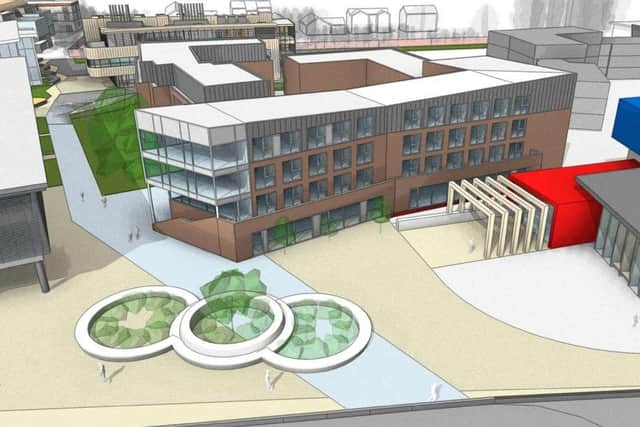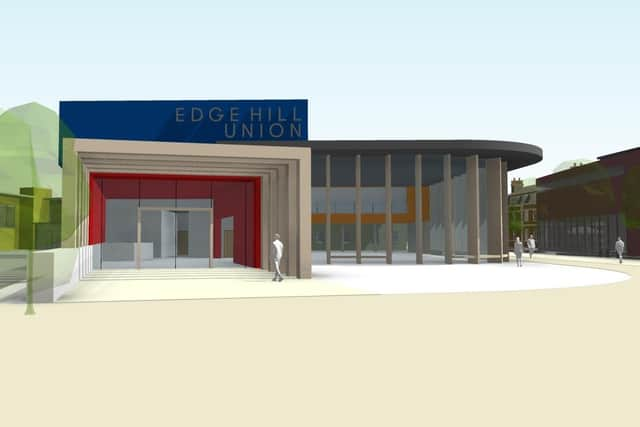Edge Hill University "bucks national trend" with £35m redevelopment plan - here's what they want to do
and live on Freeview channel 276
The proposals include 232 new residential rooms costing £23.6m and standing on the site of the former Back Halls, and a new £8.5m Students’ Union facility.
With campus life being so important at Edge Hill University, demand for on-site accommodation has continued to rise in recent years. Research into student preferences shows en-suite rooms being the number one priority, something which has been factored into the design.
Advertisement
Hide AdAdvertisement
Hide AdAt the centre of the new development will the new Students’ Union facility. Based on current students’ feedback, the new building will feature flexible spaces able to adapt to different day and night-time events, both inside and using the external space.


There will be society rooms and open social spaces, as well as embedded technology to enable more interactive experiences. Retail, food and drink outlets and student support facilities will sit on the ground floor.
Featured within the development are plans to revitalise and get the most out of the public realm space. There will be space for events like outdoor cinema or food markets, as well as external areas to meet and relax.
The plans form the second phase of the central campus development, with building work having begun last month on a new Life Sciences building costing more than £17m. The aim is for the second phase to be fully operational by September 2024.
Advertisement
Hide AdAdvertisement
Hide AdEdge Hill’s Deputy Vice-Chancellor Steve Igoe said: “This is Edge Hill’s largest ever investment and is integral to supporting the future success and development of the University.


"At a time when universities nationally are choosing not to invest in student accommodation, we are bucking the trend by increasing our offering and meeting demand from the many students who want to live here. Together with the new Students’ Union, this will truly revitalise the central campus and further improve our students’ experience whether they are living on campus or commuting here each day.
“These developments are also a vital part of the University’s de-carbonisation strategy, replacing older buildings with the latest state-of-the-art infrastructure using cutting-edge sustainable materials and technologies.”